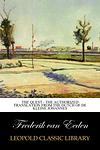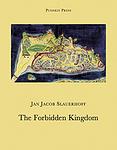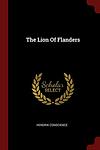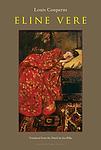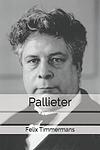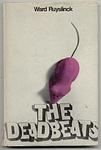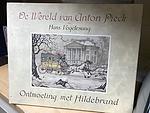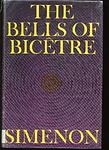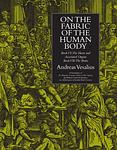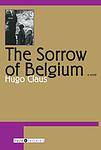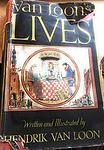The Greatest Dutch, Belgian Books of All Time
Click to learn how this list is calculated.
This list represents a comprehensive and trusted collection of the greatest books. Developed through a specialized algorithm, it brings together 300 'best of' book lists to form a definitive guide to the world's most acclaimed books. For those interested in how these books are chosen, additional details can be found on the rankings page.
Genres
Countries
Date Range
Reading Statistics
Click the button below to see how many of these books you've read!
Download
If you're interested in downloading this list as a CSV file for use in a spreadsheet application, you can easily do so by clicking the button below. Please note that to ensure a manageable file size and faster download, the CSV will include details for only the first 500 books.
Download-
1. The Diary of a Young Girl by Anne Frank
This book is a real-life account of a young Jewish girl hiding from the Nazis during World War II, written in diary format. The girl and her family are forced to live in a secret annex in Amsterdam for two years, during which she writes about her experiences, fears, dreams, and the onset of adolescence. The diary provides a poignant and deeply personal insight into the horrors of the Holocaust, making it a powerful testament to the human spirit.
-
2. The Praise of Folly by Erasmus
This satirical work is a critique of the practices of the Church and the wider social behavior of the time. Narrated by Folly, the female personification of foolishness, the book humorously criticizes various aspects of society such as superstitious religious practices, scholarly pedantry, and the excesses of the upper classes. The book is a bold critique of its time, using humor and irony to expose the follies of its society.
-
3. The Waning of the Middle Ages by Johan Huizinga
"The Waning of the Middle Ages" is a historical analysis of the cultural life of the late Middle Ages, particularly in France and the Low Countries, during the 14th and 15th centuries. It delves into the period's modes of thought, forms of expression, religious beliefs, and social norms. The book argues that the era was characterized by a highly stylized and overwrought civilization, marked by an excessive emphasis on chivalry and courtly love, a religious mindset dominated by the fear of death and the afterlife, and a cultural milieu that was both highly imaginative and deeply pessimistic.
-
4. Ethics by Baruch de Spinoza
"Ethics" is a philosophical work that explores complex ideas about God, the universe, human emotions, and the path to enlightenment. The book outlines a metaphysical, epistemological, and ethical system in which God and the universe are one and the same, rejecting traditional notions of a personal deity and asserting that understanding the natural world leads to peace of mind and happiness. The work delves into the nature of the human mind and its emotions, advocating for the pursuit of reason and knowledge to achieve a calm, enlightened state.
-
5. The Discovery of Heaven by Harry Mulisch
"The Discovery of Heaven" is a philosophical novel that explores the relationship between mankind and the divine. The story revolves around two friends, an astronomer and a philologist, who are manipulated by heavenly forces to father a child who is destined to return the Ten Commandments to God. As the narrative unfolds, it delves into complex themes such as friendship, love, art, science, and the existence of God, presenting a thought-provoking analysis of the human condition.
-
6. The Quest by Frederik van Eeden
"The Quest" is a philosophical novel that delves into the journey of a man in search of truth and purpose in life. The protagonist, disillusioned with the materialistic society around him, embarks on a spiritual quest for enlightenment. His journey takes him through various experiences and encounters with different belief systems and philosophies, challenging his existing notions and beliefs. The book explores themes of existentialism, spirituality, and the human struggle for meaning.
-
7. Cheese by Willem Elsschot
The novel revolves around a Dutchman living in Antwerp, Belgium, who is persuaded by his brother to enter the cheese business. He invests in 10,000 full-cream cheeses and sets up an office, but struggles to sell any of his stock. As he grapples with the nuances of the cheese trade, his personal life and professional relationships also begin to crumble, leading to a series of comical and tragic events. The book is a satirical commentary on business, ambition, and the absurdity of life.
-
8. All Souls' Day by Cees Nooteboom
"All Souls' Day" is a novel about a Dutch documentary filmmaker, who, after losing his wife and daughter in a car accident, moves to Berlin to escape his grief. The protagonist becomes entangled in a series of romantic relationships while struggling to come to terms with his loss. The book blends narrative with philosophical musings on memory, loss, and the nature of time, using the city of Berlin as a backdrop to illustrate the protagonist's internal journey.
-
9. The Forbidden Kingdom by Jan Jacob Slauerhoff
"The Forbidden Kingdom" is a historical fiction novel that intertwines the stories of two men, a 20th century sailor and 16th century Portuguese poet, Luis Camões. The narrative alternates between the two, exploring the sailor's obsession with the poet's life and the poet's experiences in the East, including his journey to Macao. The book delves into themes of identity, obsession, and the clash of Eastern and Western cultures.
-
10. The Lion of Flanders by Hendrik Conscience
"The Lion of Flanders" is a historical novel set in the 14th century, during the Battle of the Golden Spurs in Flanders. The story revolves around the struggle of the Flemish people against French oppression, with a particular focus on the life of the main character, a brave knight. The novel is recognized for its vivid depiction of the battle and the spirit of nationalism, making it an important piece of Flemish literature.
-
11. Eline Vere by Louis Couperus
"Eline Vere" is a classic novel that explores the life of a young, neurotic woman from the Hague, who is trapped in the restrictive high society of late 19th-century Holland. The protagonist, Eline Vere, is an enchanting but unstable young woman who self-destructs through her irrational fears and fantasies. The novel vividly depicts the social and cultural milieu of the time and is also a psychological study of a woman whose life spirals out of control.
-
12. The Garden Where the Brass Band Played by Simon Vestdijk
This novel explores the life of a young boy named Nol Rieske, who falls in love with the daughter of a bandmaster in a small Dutch town. As he grows older, he becomes a successful musician, but his obsession with the bandmaster's daughter, who is mentally ill, continues to dominate his life. The story is a detailed exploration of a man's lifelong infatuation and its profound impact on his personal and professional life.
-
13. Pallieter by Felix Timmermans
"Pallieter" is a classic Flemish novel that depicts the life of a jovial and life-loving man, Pallieter, who lives in harmony with nature in a small Belgian town. The story showcases his love for the simple pleasures of life, his interactions with the townsfolk, and his deep connection with the natural world. However, when industrialization threatens his idyllic lifestyle, Pallieter decides to leave his beloved town. The novel is a celebration of life and nature, while also exploring the impact of industrialization on rural life.
-
14. Return to Oegstgeest by Jan Wolkers
"Return to Oegstgeest" is a semi-autobiographical narrative that explores the author's childhood and adolescence in the small Dutch town of Oegstgeest during the pre and post-World War II era. The book delves into the author's troubled relationship with his stern, religious parents, his struggles with faith, and his burgeoning artistic and sexual awakening. The narrative is a poignant exploration of memory, family, and the experiences that shape one's identity.
-
15. Forever a Stranger by Hella S. Haasse
"Forever a Stranger" is a historical novel set in the 19th-century Dutch East Indies, now known as Indonesia. It tells the story of Rudolf, a half-Dutch, half-Javanese boy, who is raised by his Dutch father after his Javanese mother's death. Throughout his life, Rudolf grapples with his mixed heritage and struggles to find a sense of belonging, experiencing the harsh realities of colonialism and the cultural divide between the Dutch and the Javanese. The narrative provides a critical examination of colonialism and its impact on identity, culture, and society.
-
16. The deadbeats: a novel by Ward Ruyslinck
"The Deadbeats" is a gripping novel that follows the story of a man who, after losing his wife and job, descends into alcoholism and homelessness. The narrative delves into the harsh realities of life on the streets, exploring themes of despair, survival, and the human capacity for resilience. Despite the protagonist's struggles, the book also highlights moments of compassion and camaraderie among society's outcasts.
-
17. Max Havelaar by Multatuli
"Max Havelaar" is a novel centered around a Dutch civil servant who is stationed in the Dutch East Indies (now Indonesia) during the mid-19th century. The protagonist, trying to battle the corruption and exploitation of the local people by Dutch colonial rulers, becomes disillusioned with the system. The novel provides a scathing critique of the colonial regime's treatment of the indigenous people, highlighting their suffering and exploitation. The author uses various narrative techniques and perspectives, making it a significant work in Dutch literature.
-
18. Camera Obscura by Nicolaas Beets
"Camera Obscura" is a collection of humorous and satirical sketches that provide a vivid picture of 19th-century Dutch society. It explores the social and domestic life of the middle classes, their habits, their social pretensions, their pleasures and their follies. The book also includes a series of character studies, often based on the author's acquaintances, which are presented in a light-hearted and often ironic tone.
-
19. The bells of Bicêtre by Georges Simenon
The novel chronicles the life of a successful newspaper publisher who suffers a stroke and finds himself confined to a hospital bed, unable to communicate with the world around him. As he lies in his hospital bed, he is forced to reassess his life, his relationships and his own identity. The book explores themes of mortality, the meaning of life, and the complex nature of human relationships.
-
20. Old People And The Things That Pass by Louis Couperus
This novel delves into the hidden secrets and unspoken truths of an elderly couple, revealing the profound impact of their concealed affair on their family across generations. As the narrative unfolds, it exposes the complexities of human relationships and the consequences of past actions, illustrating how secrets can ripple through time, affecting not just those who keep them but also their descendants. The story masterfully explores themes of guilt, redemption, and the inescapable nature of the past, all while painting a poignant picture of aging and the inevitable passage of time.
-
21. On the Fabric of the Human Body by Andreas Vesalius
"On the Fabric of the Human Body" is a seminal work in the field of anatomy, providing detailed descriptions and illustrations of the human body's structure and functions. The book, written in the 16th century, revolutionized the understanding of human anatomy, challenging the prevailing ideas of the time, which were primarily based on the dissection of animals. Its author, a physician and anatomist, emphasized the importance of direct observation and dissection of human bodies in medical education and research.
-
22. Rituals by Cees Nooteboom
"Rituals" is a philosophical novel that explores the lives of three men, each dealing with existential crises in post-World War II Netherlands. The narrative delves into their individual searches for meaning and purpose, their struggles with societal norms, and their attempts to establish personal rituals as a way to create order in a seemingly chaotic world. The book is a profound meditation on the human condition, examining themes of time, death, and the nature of reality.
-
23. Smell of Sadness by Alfred Kossmann
"Smell of Sadness" is a poignant narrative that revolves around a man who, after being separated from his wife during the Second World War, embarks on a journey to find her. The story takes us through the protagonist's experiences, his encounters with various people, and his personal struggles. The book is a deep exploration of human emotions, particularly the profound sadness that permeates through the protagonist's life, making it a moving and thought-provoking read.
-
24. The Sorrow of Belgium by Hugo Claus
"The Sorrow of Belgium" is a coming-of-age story set against the backdrop of World War II. The narrative follows the life of a young boy in a Flemish town, as he navigates through the complexities of adolescence, family relationships, and the harsh realities of war. The novel provides an insightful exploration of Belgian history, culture, and the nation's struggle under the Nazi occupation, all through the eyes of the protagonist.
-
25. Van Loon's Lives by Hendrik Willem van Loon
The book in question is a unique blend of biography, autobiography, and fantasy, where the author imagines inviting historical figures from different eras to dinner at his home. Through a series of lively conversations and interactions, the author and his guests explore the lives and thoughts of these famous individuals, ranging from philosophers and scientists to artists and rulers. The narrative provides a creative and insightful look at history, as well as the author's own musings on life, culture, and human progress, all while blurring the lines between past and present in an engaging and whimsical manner.
Reading Statistics
Click the button below to see how many of these books you've read!
Download
If you're interested in downloading this list as a CSV file for use in a spreadsheet application, you can easily do so by clicking the button below. Please note that to ensure a manageable file size and faster download, the CSV will include details for only the first 500 books.
Download




